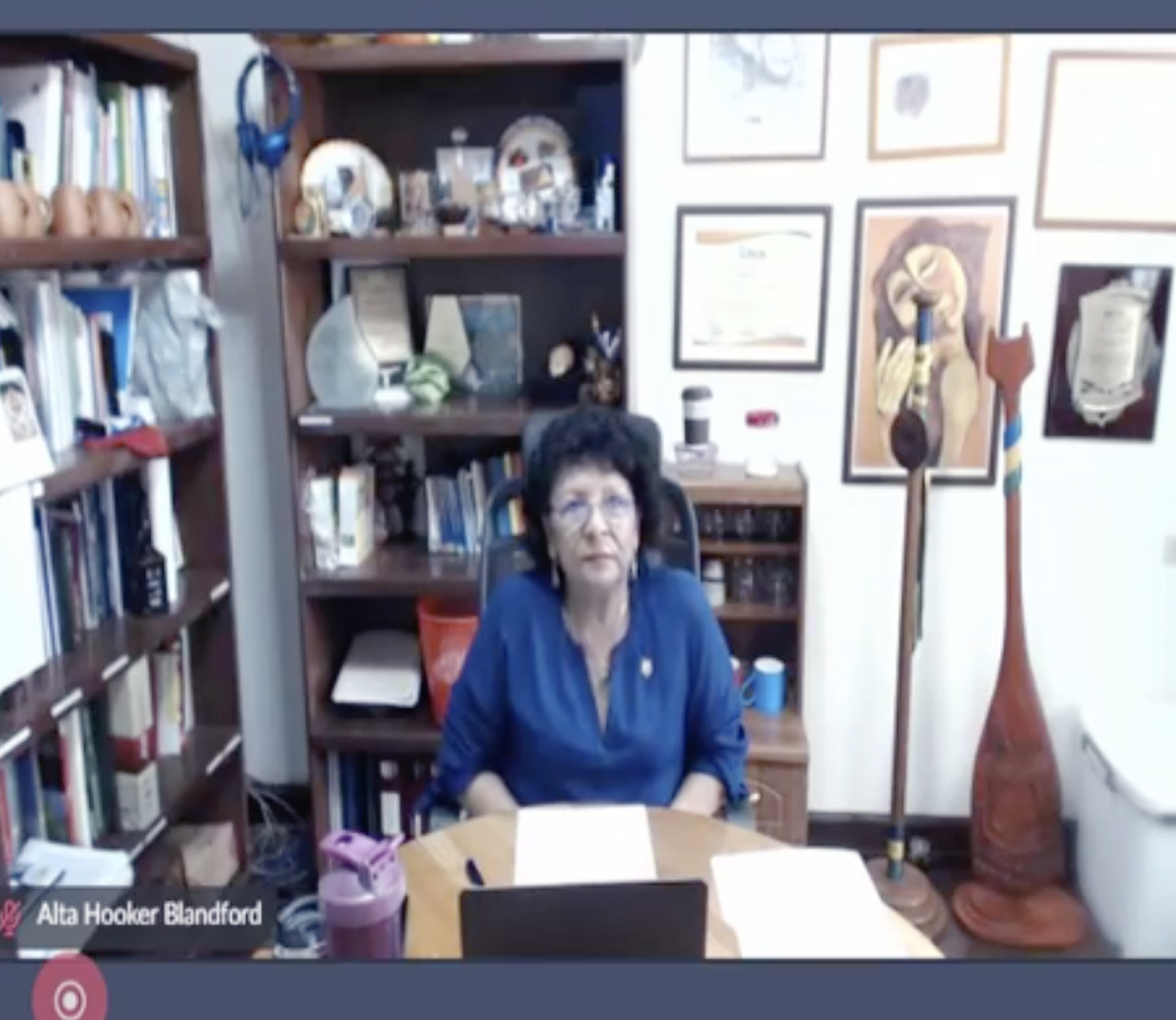
Dr. Alta Hooker, rector of URACCAN, during her inspiring dissertation.
The community university model strengthens peoples' autonomy through education.
The rector of URACCAN, Dr. Alta Hooker, participated this afternoon, as a lecturer, in a talk entitled "Higher Education, Autonomy and Indigenous Peoples", organized in commemoration of the International Day of Indigenous Peoples decreed by the United Nations in 1994, the year that coincides with the founding of this intercultural community university.
In the activity, whose welcome was given by the vice-chancellor of the Las Minas, PhD venue. Leonor Ruiz Calderón, regional and international authorities participated. Dr. Ruiz highlighted how from the community university model, URACCAN strengthens peoples' autonomy through education.
In this regard, Dr. Hooker began her dissertation by locating this special day for URACCAN in the international and national legal framework that promotes the exercise of indigenous, Afro-descendant and other ethnic communities, such as ILO Convention 169, the same Declaration of Human Rights, the Law on Autonomy and Law 445, the Law on Territorial Demarcation , as well as the right to revitalize their culture and language, to their own model of health and education (SEAR).
National achievements in legal matters have allowed indigenous peoples to determine their own processes, gain spaces and recognition. However, the rector reflected, there is still a great way to go. Hence, "homogenization does not mean that we are all equal, but takes away the other's right to be different."
And that diversity is what makes the original peoples special. Based on their intercultural, multi-ethnic and multilingual relationships, they develop their identity. For this reason, URACCAN promotes consensus and respect for cultural differences, where human wealth lies.
In this order of ideas, Dr. Hooker explained that CEIMM-URACCAN has a robust legal framework, relevant to indigenous peoples, whose approach she brings to the construction of intercultural citizenships, which is one of the great aspirations of this intercultural community university.
Dr. Hooker, throughout her wise dissertation, established the relationship between the university and the community, where the former must contribute "to the construction of new tools that strengthen community inheritances, where the word has preponderance in the analysis and interpretation of the reality in which people live".
The dialogue, the rector of URACCAN pointed out, must take place on an equal footing, as raised since the Regional Conference on Higher Education (CRES), in harmony with Mother Earth and the spirituality of communities. Therefore, from the vision of indigenous leaders, good living is a philosophy of "brotherhood and complementarity, respecting nature and sacred sites for spirituality and the sacred cycle of the word".
Dr Hooker also explained that it is necessary to conceive of education as the fundamental basis for the visibility of cultures and that although we are living in an extremely complex context, where we are called to make greater use of virtuality, it is also time to demonstrate that ancestral knowledge takes effect and that it must contribute to the defense of the territories against the pandemic , which we have seen since traditional medicine.
Rector Hooker's inspiring words invite "Continue to build and strengthen autonomy from educational processes, taking into account the realities of peoples and their relationship to the environment"
Dr Hooker concluded by quoting a fragment of UNESCO's speech yesterday, Count said that "protecting peoples also means promoting peace, law, inclusion and diversity."
- Log in to post comments
- 31 views
